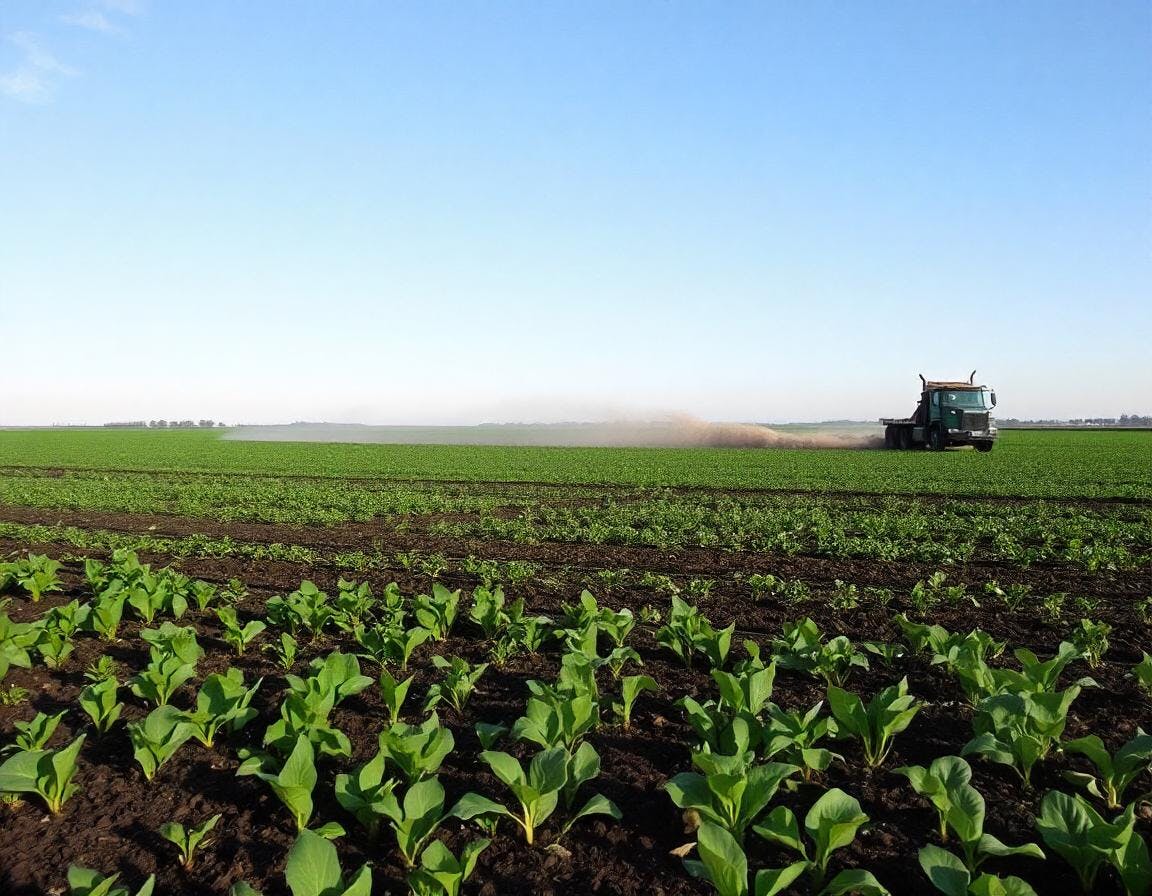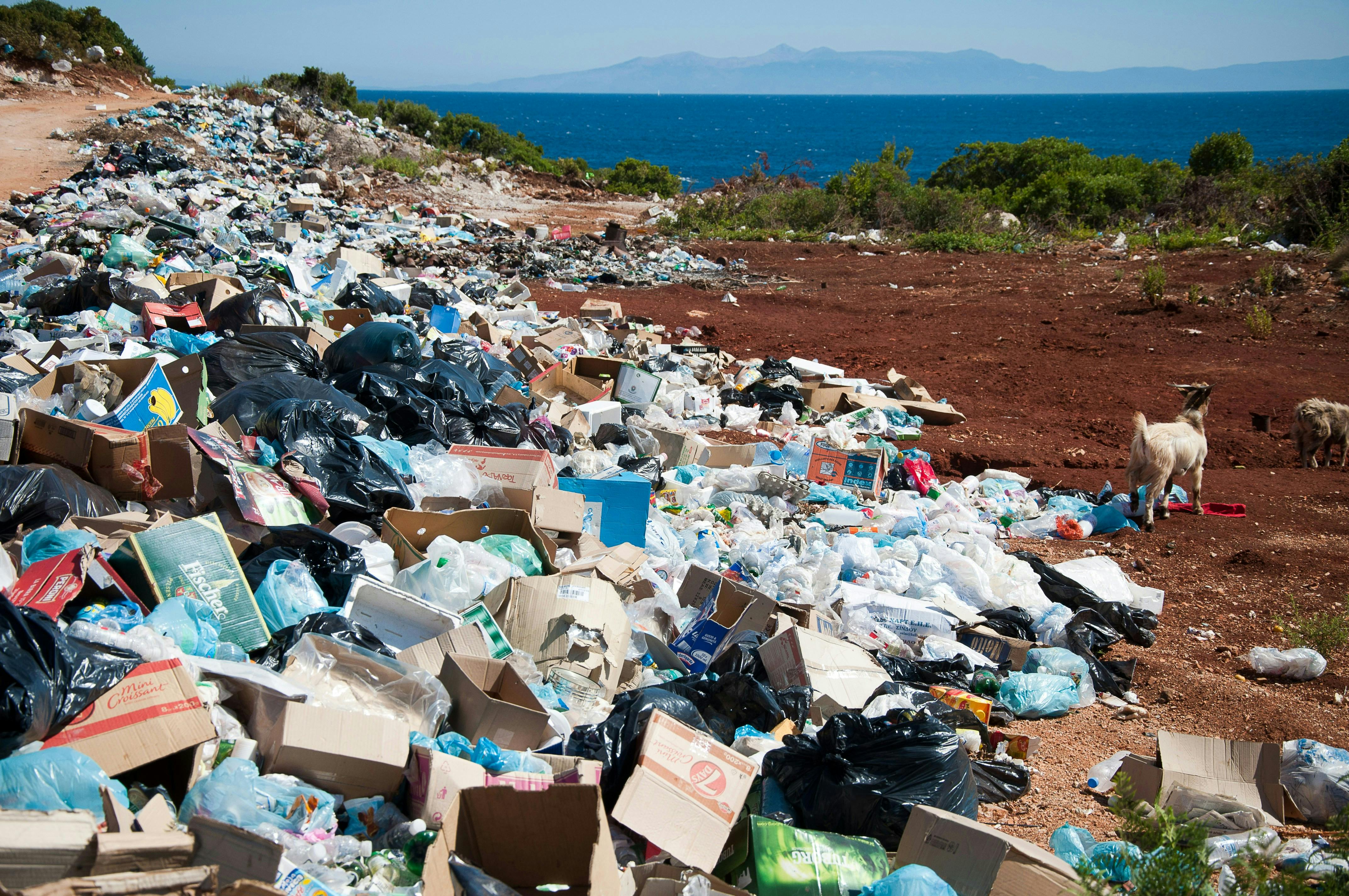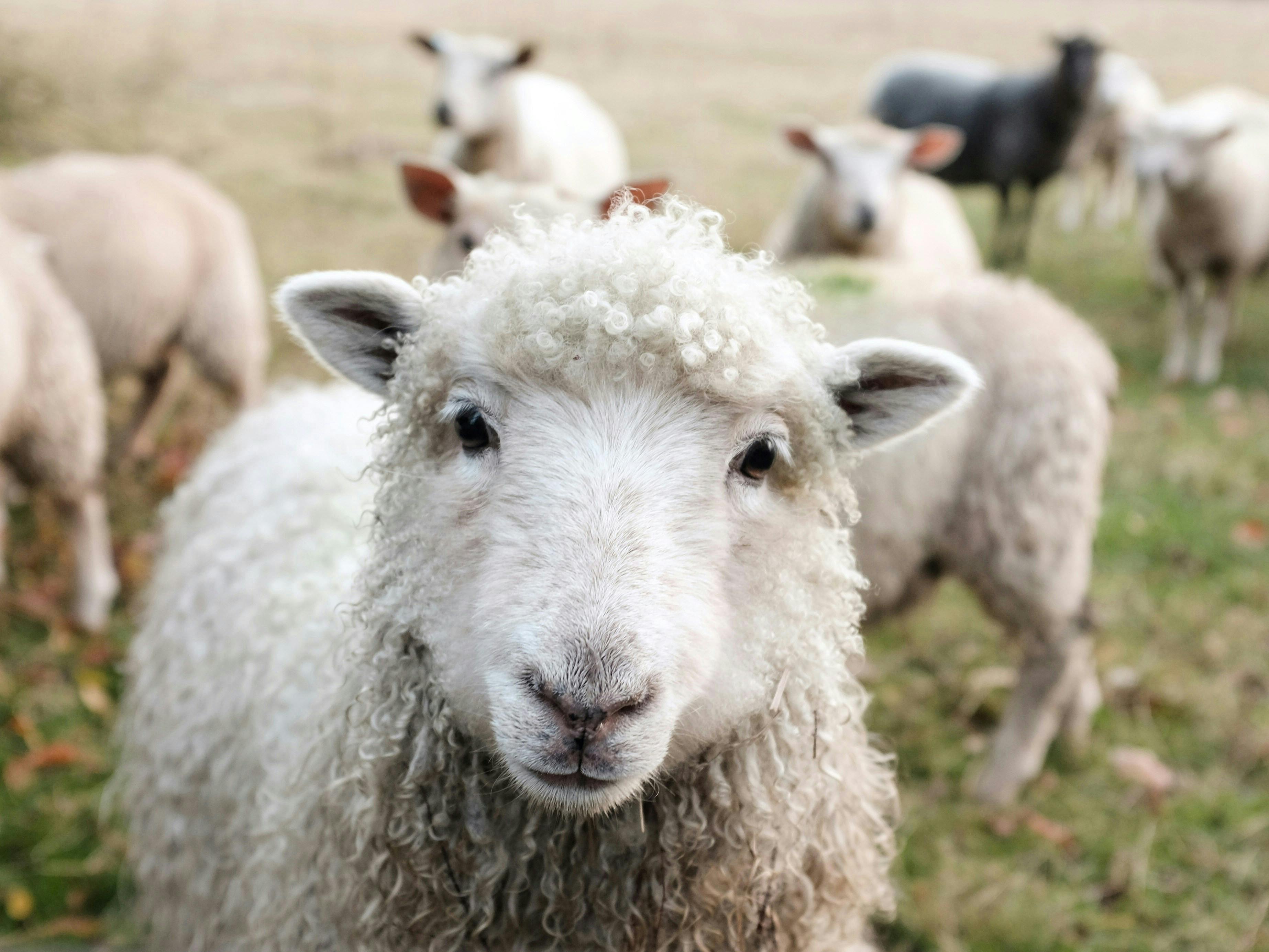America’s Dirty Secret: How Contaminated Farmland Threatens Our Water Supply
As the CEO of a premium water company, the purity of what we consume is not just our business—it's our passion. We often - and should - think of water as life’s most essential element, but the reality is that it’s far more vulnerable than we realize. We trust that what flows from our taps or sits on store shelves is clean and safe. Yet, beneath our confidence lies a troubling truth: America’s farmland is silently poisoning our water supply, and the culprit is PFAS.
Starting in the late 1970s, the Environmental Protection Agency (EPA) has encouraged farmers to use municipal sewage sludge, or “biosolids,” as fertilizer. The idea was simple—why not recycle human waste into something beneficial for agriculture? Biosolids were rich in nutrients, and farmers could use them to boost soil health. Unfortunately, in promoting this eco-friendly vision, we unknowingly invited a serious threat into our fields, our food, and ultimately, our water.
PFAS: A Threat to Both Land and Water
PFAS (Per- and Polyfluoroalkyl Substances), often referred to as "forever chemicals," have been used in countless industrial and consumer products for decades. From non-stick pans to water-resistant clothing, these chemicals don’t break down, instead persisting in the environment—and in us.
What many people don’t realize is that PFAS has been steadily seeping into the soil via the biosolids used to fertilize millions of acres of farmland. And as rainwater washes over these contaminated soils, PFAS leaches into our groundwater, streams, and eventually, drinking water reservoirs. So, the very chemicals used to nourish the land are poisoning our water sources from beneath our feet.
As someone who works tirelessly to ensure that every drop of water we deliver is pure and free from contaminants, I’ve learned this is not just a rural issue; it’s a crisis that exists and persists across the world. Our farms are intertwined with our water systems, and when the land is compromised, so is the purity of the water that sustains us. Every rainfall, every irrigation system that interacts with this contaminated soil leads to PFAS migrating into rivers, lakes, and underground aquifers.

The Impact on Drinking Water
The drinking water crisis linked to PFAS is far-reaching. According to a recent NPR report, millions of acres of farmland across the United States have been contaminated by PFAS due to the use of biosolids as fertilizer. And therefore, the water that runs through it. You better believe it is very similar in Europe and the rest of the world!
"We are facing a growing catastrophe," says David Andrews, a senior scientist with the Environmental Working Group. "Not only are these forever chemicals poisoning crops and livestock, but they are contaminating the water supply for millions of Americans." PFAS has already been detected in drinking water systems across the country, with some estimates suggesting that over 200 million people may be exposed to unsafe levels of PFAS in their water.
Should you be alarmed? Yes. PFAS is linked to serious conditions, including cancer, liver damage, and immune system disruption. And because these chemicals don’t degrade, they accumulate in our bodies over time.
Is Even "Organic" Not Safe Anymore?
For consumers, the revelation that even organic farms could be contaminated is unsettling. The term "organic" often brings to mind images of pristine fields, free from harmful chemicals and synthetic pesticides. However, PFAS contamination doesn’t discriminate between conventional and organic farming. If biosolids were used, even organic farms could be tainted by these forever chemicals. This also doesn’t account for other potential cross-contamination from natural or manmade disasters!
It raises important questions about the integrity of our food system. Can we truly label food as "organic" if it has been grown in contaminated soil? And what steps are being taken to address this massive problem?

What’s Being Done to Protect Our Water?
As someone who has built a business around the concept of purity, it's deeply concerning to see how widespread the contamination has become. But there is hope. Here’s what’s being done to address this crisis:
- Regulatory Changes: The EPA has begun to take the issue seriously, proposing limits on PFAS in drinking water. They’ve also started re-evaluating the use of biosolids on agricultural land. But this process is slow, and regulation is often playing catch-up to the extent of the contamination. Some states, like Maine, have already banned the use of contaminated biosolids to protect their water and food supplies.
- Water Treatment Upgrades: Municipal water systems are now implementing advanced filtration technologies to remove PFAS from drinking water. This includes the use of activated carbon, reverse osmosis, and ion exchange systems. At our company, we harvest directly from 700 ft below the ground’s surface ensuring our water is not contaminated by any environmental contaminants and test annually to ensure this is the case. Therefore, we do not need any filtration systems, but understand this is crucial for municipal water supplies.
- Farm Remediation: Across the US, efforts are underway to rehabilitate contaminated farmland. This includes soil testing, crop rotation strategies, and the development of bio-remediation methods to help cleanse the soil of PFAS. While the process is laborious, it’s a necessary step to ensure that our farmland—and the water beneath it—is safe.
- Rethinking Organic Certification: Given the widespread contamination, there’s a push to rethink organic certification. The USDA and other regulatory bodies may need to introduce stricter guidelines to ensure that truly "organic" farms are not using contaminated biosolids.
Public Awareness and Advocacy: Advocacy groups are putting pressure on regulators to accelerate efforts to regulate PFAS. There’s growing awareness around the connection between what happens on the farm and what comes out of our taps. Consumers can also play a role by staying informed and supporting legislation that aims to address PFAS contamination more aggressively.
Why Water Purity Matters More Than Ever
At the heart of this issue is a simple truth: water is life. Without access to clean, safe water, our health and well-being are at risk. As a CEO dedicated to delivering the purest water possible, I see the broader implications of this crisis every day. We’re not just talking about dirty water—we’re talking about a system-wide contamination that threatens our food supply, our ecosystems, and the health of future generations.
This isn’t just a problem for farmers, regulators, or the water industry; it’s a problem for all of us. The contamination of farmland by PFAS and its subsequent impact on water quality is a wake-up call that we must heed. It's a reminder that the choices we make about how we treat our land directly impact the water we drink.

What Can We Do?
While government and industry are taking steps to fix this, we all have a role to play in ensuring the purity of our water. Here are a few actionable steps:
- Support Local Water Initiatives: Many cities and towns are upgrading their water treatment plants to address PFAS contamination. Supporting these local efforts, either by voting for funding initiatives or participating in public hearings, can make a big difference.
- Choose Water Wisely: Opt for premium water brands that prioritize purity and are transparent about their quality reports. One amazing tool is the platform Oasis Water offering access to hundreds of both municipal and bottled water reports. If you want to reduce your bottle recycling, then research and invest in advanced filtration technologies. At our company, we guarantee that our water is rigorously tested and free from contaminants like PFAS, naturally - without any filtration.
- Advocate for Stricter Regulations: Push for stronger regulations. Policies that limit the use of biosolids and set enforceable standards for PFAS in drinking water are crucial to solving this problem.
Stay Informed: Knowledge is power. The more we understand about the connection between farming practices and water quality, the better equipped we are to make informed choices as consumers and advocates.
A Path to Pure Water
America's farmland has always been the heart of our nation’s food and water systems, but PFAS contamination has turned that trust upside down. As the CEO of a family-owned premium water company, I’ve made it our mission to deliver water that is as pure and safe as nature intended. But until we address the root of this problem—how we treat our land—there will always be risks to the water we drink.
Together, we can push for cleaner, more sustainable practices that protect our farms, our water, and our health. Pure water is not a luxury—it’s a necessity. Let’s ensure it stays that way.
References
"PFAS 'Forever Chemicals' Could Be Contaminating Millions Of Acres Of Farmland" NPR
"They told us that this material would be safe. Toxic PFAS discovered on US farms" CNN
"Something is Poisoning America's Land. farmers Fear Forever Chemicals. New York Times